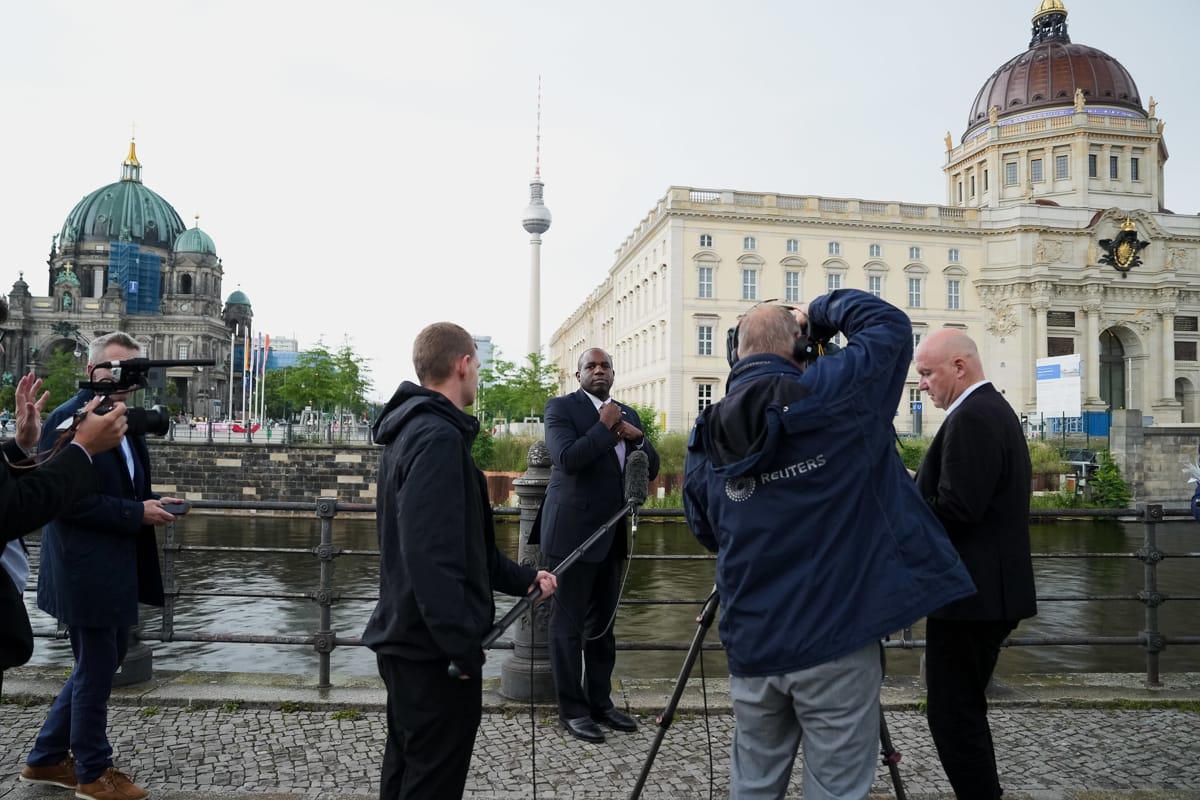It is all change in London. Labour’s landslide victory in the UK election last week saw Sir Keir Starmer enter Number Ten after 14 years of Conservative rule and a fair degree of chaos and uncertainty. The new Prime Minister has made rebuilding Britain and restoring credibility in domestic politics his priority. However, his government are also setting a new tone in foreign policy as it seeks to reconnect with allies, correct the failings of the previous administration, and set a stronger and more decisive course.
What, though, does this mean for the country’s engagement with Australia and the wider Asia-Pacific? And what opportunities does it present for Australia?
Even before the election, new Foreign Secretary David Lammy was articulating his vision for Britain’s reengagement with the world based on what he has termed “progressive realism”. Lammy has offered an optimistic approach rooted in “just goals” tempered with pragmatism about the scale and difficulty of the many crises faced. In a series of speeches and interviews, he outlined his priorities: resetting relations with Europe, continuing Britain’s commitment to Ukraine, calling for a ceasefire in Gaza and preventing conflict in the wider Middle East, and leading on climate change.
Given the scale of domestic challenges, Britain may lack the capabilities for a deep and extensive regional presence, militarily or diplomatically, at least in the short-term.
These primary areas of focus are on Britain’s near neighbourhood, but there are many reasons to be optimistic about the shift. At the heart of this vision is a recommitment to international diplomacy and a strengthening of multilateral and bilateral ties. This includes through the G20, NATO, and the United Nations, as well as the Commonwealth (all of which Australia is a part). Such a mission will be supported by bolstering the Foreign, Commonwealth and Development Office and increasing regional expertise – especially on China.
Through this, Australia continues to be an important partner. The UK remains “fully committed” to AUKUS, as well as to maintaining its own nuclear deterrent. Irrespective of the outcome of the American elections later this year, which some fear may derail the relationship if Trump wins, the British-Australian partnership will be key. Beyond focus on the nuclear-powered submarines, the emphasis of the agreement on technology and skills aligns well with renewed British ambitions to scale up its technological potential and expertise.
This is not the only area where Britain will be looking to work more closely with Australia. Its emphasis on British trade suggests scope for greater engagement in the Comprehensive and Progressive Agreement for Trans-Pacific Partnership (CPTPP), after Britain signed the accession protocol in 2023, and which Lammy highlights again in his vision.

Prime Minister Anthony Albanese and Starmer shared their first call over the weekend with ambitions to lead on climate change a common priority. This mission holds scope for innovative and constructive collaboration and diplomacy, especially with small island nations, many of whom are members of the Commonwealth and at the forefront of global climate initiatives.
Among Labour’s first raft of policies are a proposed audit across Whitehall within the first 100 days on Britain’s relations with China. Provisional work is already underway, and there are lessons that the UK can learn from Australia and its experts about navigating a pragmatic balancing act between competition, cooperation, and challenge.
Australia would do well to seize the moment while there is the energy and enthusiasm of a fresh start.
In addition to maintaining and enhancing its defence cooperation with Japan, there is a continued commitment to engage with the “Global South”, especially its relations with India. One area where the UK might learn more from Australia is in ties with Indonesia, a critical state in Southeast Asia and one that does not feature highly in Britain’s foreign policy objectives.
Certainly, there are notes of caution and obstacles ahead. It is far easier to make promises from outside of government than to deliver once in office. Given the scale of domestic challenges, Britain may lack the capabilities for a deep and extensive regional presence, militarily or diplomatically, at least in the short-term. Time and resources will be finite, even with a renewed determination to reengage with the world. So selective but intentional signs of intention and commitment will be key.
Yet there is intent and momentum. Australia would do well to seize the moment while there is the energy and enthusiasm of a fresh start. Although Albanese’s absence from the NATO Summit in Washington this week means a prime opportunity is missed to begin those discussions in person, the ties between Britain and Australia, and their people, are close and enduring. In this regard, the anticipated junior minister for Asia and the Pacific Catherine West, who hails originally from Mansfield in Australia and is a regional expert and Mandarin speaker, will be a critical point of contact.
For those in Australia and the region who seek to capitalise on the change in Britain, there is cause for optimism and ample opportunities to reconnect and collaborate with its new vision.

